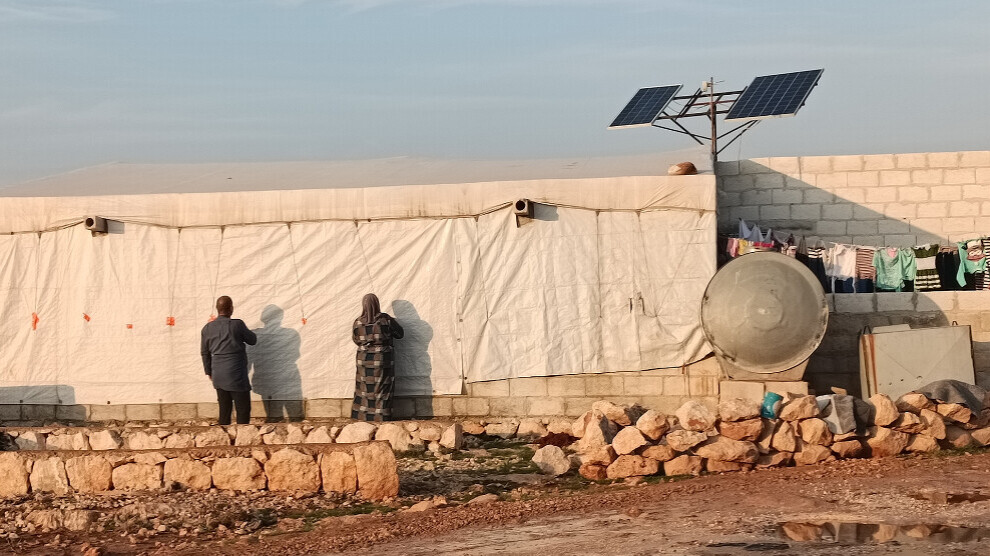Conditions in IDPs camps affect women’s mental and physical health
There is no privacy for women living in Idlib’s IDPs camps due to transparent tents. They face many difficulties everywhere, particularly in public toilets.

HÊDIL EL-OMER
Idlib – Forcibly displaced people and refugees face almost the same problems, no matter which country or city they go to. Women struggling to survive in the IDPs camps of Idlib have to struggle with many difficulties as well as the psychological effects of being displaced. One of the problems faced by these women is the transparent tents. Due to the transparent tents, there is no privacy for women; they have to whisper while talking because their voices can be heard by everyone in the camps. Families use different methods to prevent other people from seeing them inside their tents. NuJINHA spoke to several women living in a IDPs camp of Idlib about what difficulties they face.
‘I do not feel comfortable whole day’
33-year-old Maram Al-Rai has not been able to spend a special time with her family for nearly three years. “The Tal al-Karamah camp north of Idlib has no privacy. Tents are close to each other. Since the tents are close to each other, we feel like we are listened to by the neighbors while talking to my spouse and children. We feel like we live in the same tent with our neighbors. For this reason, we have to lower our voices while speaking to each other in the tent. I remove my headscarf only when we turn off the lights in the tent. I do not feel comfortable the whole day because we do not have a door to close. Everyone living in the camp knows what I cook.”
No playground for children
29-year-old Karima Al-Nuaimi, a displaced woman from Talmans village in southern Idlib, lives in the Haranbush camps, northwest Idlib. Speaking about the difficulties they face in the camp, she said, “We have to carry water from afar to wash clothes and cook. At night, the camp is very dark and there are many dogs. Going to the toilet at night is one of the biggest problems I face in the camp. Since our tents are very thin, we hear everything. Another problem in the camp is that there is no playground for children.”
Conditions in the camps affect women’s mental and physical health
Social worker Rula Al-Orban, 44, told NuJINHA that displaced women face many difficulties in the IDPs camps. “Before being forcibly displaced from their homelands, these women had a safe life. However, life in the camps is different. Women are often subjected to sexual assault due to the transparent tents. This situation can lead to psychological problems for women such as fear and anxiety,” she said.
Call on NGOs
The women living in the IDPs camps have to use public toilets, wash clothes outside in summer and winter. They suffer from the lack of safety, hygiene, food, playground and many other problems. Underlining that all these problems affect displaced women, Rula Al-Orban called on all NGOs to support the women.
